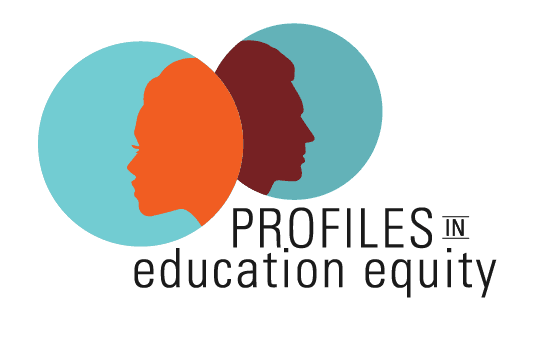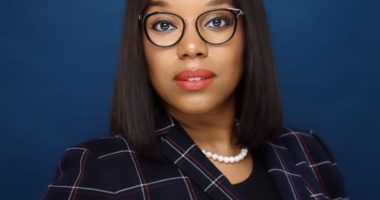Profiles in Education Equity: Jaleesa Jones, East Baton Rouge Parish School System
 Jaleesa Jones has been a Louisiana resident for over 13 years and has served the students in the East Baton Rouge Parish School System (EBRPSS) in many capacities, including teacher, instructional specialist, district instructional specialist, and now as the district literacy specialist in EBRPSS’s newly developed Division of Literacy. Jaleesa is also a leadership development coach for Louisiana State University’s Leadership Development Institute and a doctoral student at Xavier University of Louisiana studying educational leadership with a concentration in urban education and school turnaround.
Jaleesa Jones has been a Louisiana resident for over 13 years and has served the students in the East Baton Rouge Parish School System (EBRPSS) in many capacities, including teacher, instructional specialist, district instructional specialist, and now as the district literacy specialist in EBRPSS’s newly developed Division of Literacy. Jaleesa is also a leadership development coach for Louisiana State University’s Leadership Development Institute and a doctoral student at Xavier University of Louisiana studying educational leadership with a concentration in urban education and school turnaround.
What does education equity mean to you?
Education equity to me means fairness, individualization, and providing all stakeholders with the resources, tools, and opportunities needed to succeed. Education is empowering. And for many of the students I serve, it is their only way out. True equity varies based on the unique need of each entity. It is not just offering people a seat at the table, it is offering a seat at the table with a prescriptive amount of input and influence.
Share one big success from your work to date and how you measured success.
One big success is my partnership with Louisiana State University’s Leadership Development Institute. I am the youngest person to ever serve as a leadership development coach, which welcomes a new voice and a new perspective. I never imagined that I would be afforded such an opportunity at 33 years old. However, being in this space opens yet another door to shift the narrative and influence change.
What (or who) motivates you to advocate for education equity?
My work in equity is motivated by my children. Being the mother of two young African American boys has shaped who I am and what I do. I want to make sure that my children know that they and others who look like them are given opportunities to succeed.
What’s your favorite quote? Why?
My favorite quote comes from my trailblazing sorority sister, the late, great Shirley Chisholm: “If they don’t give you a seat at the table, bring a folding chair.”
It is radical, bold, and empowering. She was an advocate for those who are marginalized, and sadly, that still exists today. I will do whatever it takes to ensure children are afforded opportunities to succeed regardless of their zip code, color of their skin, or background. To truly see change happen, you must be willing to take risks and create spaces for others to do so.
What’s next regarding your work?
Next up for me is my work in education policy. I have been in the school system for years and I’ve always thought that to make changes, I had to do it from the inside, which is possible, but only to an extent. If you are trying to make big moves in education, policy is the way to go. I recently started working with a lobbyist in Louisiana around the CROWN Act, which stands for “Creating a Respectful and Open World for Natural hair” and is a law prohibiting hair discrimination. School systems that prohibit natural hairstyles is both physically and emotionally damaging to African American students. Policies that ban Bantu knots, dreads, and any other ethnic hair style in our school systems are just another way for people to discriminate and deny opportunities to Black students. I am committed to working with lawmakers to pass the CROWN Act in Louisiana and will not stop until it is done.

